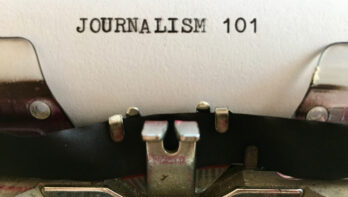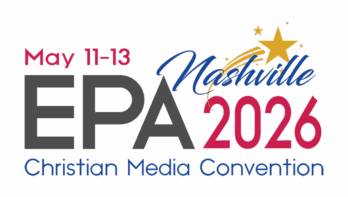
Have you ever wondered why some loyal readers get lost in your articles? I know I have. But not long ago, my former high school choir director shocked me with his simple solution.
I was attending a high school homecoming at Wheaton Academy, my alma mater outside Chicago, and I was chit-chatting with the director, who for years had been a loyal reader of Christianity Today, where I labored as an editor for 23 years.
“I love CT,” he blurted out, “but tell your editors to put the cookies on the lower shelf!”
That surprised me and caused me to laugh, yet I also knew what he meant.
After I joined the CT staff, I found most editors had seminary or other advanced degrees. Each new edition featured thought-provoking, sometimes irenic articles by thought leaders, scholars, authors, and other brilliant people. Legendary scholar-theologians JI Packer, Tom Oden, Miriam Adeney, or influential ministry executives would hang out with our staff for meet-ups about current evangelical theology, missions, and outreach. Those were heady discussions.
Despite our persistent effort, we published too many articles written above the grasp of our core audience—the lay church leader. Our survey data of editorial content would reveal that many readers would begin reading but not finish a particular article. Sometimes, they would give a piece a low score in assessing its value and application to their lives or professions.
It’s not a new problem or one confined to writing about theology. Every journalism instructor I’ve known endorses the boilerplate acronym, KISS – “Keep it simple, stupid.”
Yet the choir director’s version of where to place the cookies seems more evocative to me. It presents a better, relevant approach to writing articles that are reader-centric and oriented toward reader learning. Such reports are read from start to finish, change people’s minds, and readers share them within their networks.
For decades, journalists would remind each other that an important goal for their first paragraph (the lede) was to “hook your reader,” compose a “hook sentence,” or stun the reader with an astonishing fact or idea hook.
But the reader is not a fish. One day, this reality dawned upon me while fishing with my son, Mathias, when he was very young. After a while, he was bored a bit and decided it would be much more fun to feed leftover bread chunks to the fish. He was right, and no surprise, I amended my thinking from “hook the reader” to “feed the reader.”
So, fast-forward to my light bulb moment with that choir director. I did my research and found that Americans consume seven billion chocolate chip cookies yearly. Store-bought cookies seem to fall into two categories: crunchy or chewy.
The cookies we cannot ignore are made from scratch, home-baked, and fresh from the oven, with their irresistible fragrance filling the home. They are crunchy on the outside and chewy and warm on the inside. Could anyone resist that? Eating that kind of cookie recently got me thinking. How could we, writers and editors, create articles like that? Could this be accomplished in our era of information overload, where reading is a luxury replaced by scanning and skimming?
The answer is yes. Let me share my new acronym: ABC. Write in ways that are: accessible, believable and comprehendible.
Articles that we write in our “mother tongue,” our native language, will always be more accessible to native readers. English remains the number one spoken language worldwide, with 1.5 billion speakers, according to Statista. Yet other research reveals English is a second language for more than half of all English speakers.
To put the cookies on the lower shelf, we must publish shorter articles with shorter sentences and shorter words—pieces that make a relational connection to the reader. This idea will set on fire the hair of many of my writer and editor friends. But the benefits of achieving accessibility far outweigh the cost. Write at sea level, not in the clouds, because only 29 percent of the Earth is above sea level. Writing at an accessible level is not dumbing down, watering down, simplistic, or an all-milk, no-meat diet.
Believable articles are credible, well-researched, and verifiable. No one believes anyone anymore in our age of internet fabrications, falsehoods, and half-truths. Meaningful citation, fresh, primary sourcing, and honest transparency contribute to the believable character of what we write and publish. The recent jury award of nearly $1 billion against Infowars Alex Jones in the Sandy Hook defamation case further erodes trust between our readers and us. Writing becomes believable when verification is baked in, not footnoted or hyperlinked.
Comprehension is a fancy Latin word for what people better understand after reading something. If we, writers and editors, do not add comprehension to our must-do list with the information we publish, we’re not putting the cookies on the lower shelf. Comprehension is all about what I call “reader outcome.”
What do you wish for the reader to do after finishing your article? This outcome ranges from the unacceptable (doing nothing) to changed thinking and changed behavior. Manipulation has nothing to do with metanoia—changing of the mind. Content that manipulates is exploiting the reader. Content that leads to a changed mind shows excellent potential for doing good, not ill. As Christians, do we not see enormous life change when someone believes, comprehends, and accepts the gospel?
The enduring promise of journalism is that writers and editors can help others make wise and informed choices. Let’s accept the fact that informing readers alone is insufficient. “I told you so” is a cop-out.
Imagine made-from-scratch journalism that is crunchy on the outside, warm and chewy on the inside. Accessible, believable, and understandable journalism is what we should be going for and what 1.5 billion English speakers hunger for.
— by Timothy C. Morgan
A teaching professor at Gordon College (Wenham, MA), Tim Morgan has been a journalist since 1980 and served as deputy managing editor at Christianity Today, where he worked for 23 years.
Posted Dec. 15, 2022





